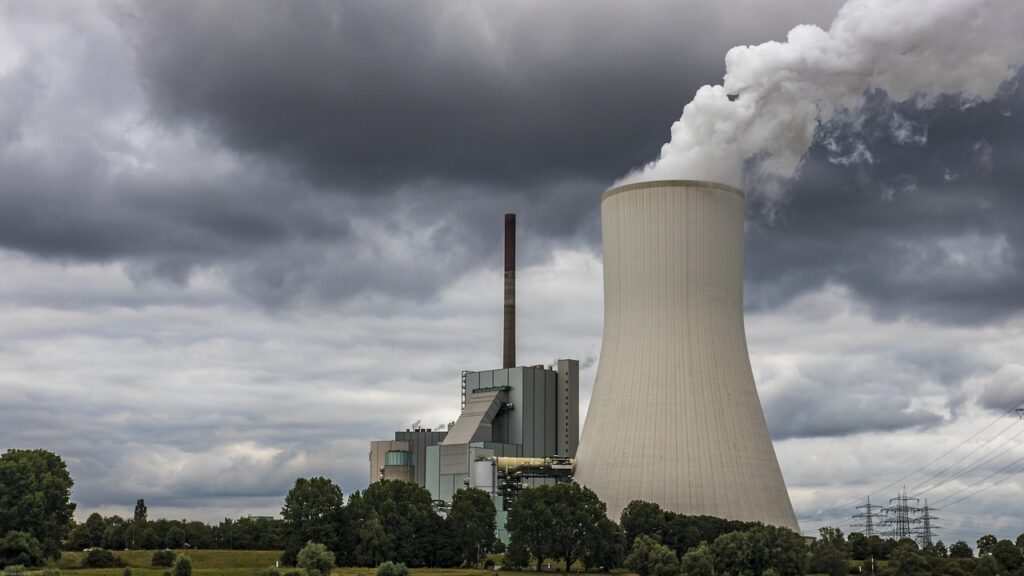
Industrial power systems are the backbone of many manufacturing plants, data centers, and large-scale operations. These systems are designed to deliver reliable and efficient power to complex industrial operations, ensuring uninterrupted production and operational continuity. Understanding industrial power systems, their components, and their applications is essential for businesses that rely heavily on electrical infrastructure. This blog post will guide you through the basics of industrial power systems and their critical use in modern industries.
What Are Industrial Power Systems?
Industrial power systems are electrical networks designed to generate, transmit, and distribute electricity to large-scale facilities. These systems power machinery, control systems, lighting, and other essential operations in an industrial setting. Unlike residential power systems, which are relatively simple, industrial power systems are much more complex, featuring high-voltage equipment, transformers, switchgear, and protection devices to ensure safe and reliable operation.
Industrial power systems typically include several key components, such as:
Generators: These provide power when the main electrical grid fails or is unavailable. Industrial generators can be diesel, gas-powered, or connected to renewable energy sources such as solar or wind.
Transformers: Transformers step up or step down voltage levels to ensure that power is delivered at the correct voltage to different parts of the facility. High-voltage transformers are used for efficient power transmission, while lower-voltage transformers ensure the safe operation of equipment.
Switchgear: Industrial switchgear manages and protects the power system by controlling the flow of electricity. It helps isolate faults, protect circuits, and maintain the safe operation of power distribution.
Protection Systems: These devices safeguard the electrical network from overloads, short circuits, and other faults that could disrupt operations or cause damage to equipment.
By managing and distributing electrical energy efficiently, industrial power systems ensure that a facility’s operations run smoothly, minimizing downtime and avoiding costly power outages.
The Importance of Reliability and Safety
In an industrial setting, power outages and system failures can be costly, potentially halting production and damaging equipment. Therefore, the reliability of industrial power systems is paramount. Reliable power ensures that machinery operates continuously, processes remain efficient, and workers can perform their tasks safely.
Safety is another critical aspect of industrial power systems. Given the high voltage levels and powerful equipment involved, industrial power systems can pose serious risks if not properly managed. Equipment like arc resistant switchgear is essential for protecting workers from dangerous electrical arcs that can cause injuries. This kind of switchgear is designed to contain and direct the energy released during an arc flash, reducing the risk to personnel.
Proper maintenance, regular testing, and the use of advanced safety features are key to preventing accidents and ensuring that power systems operate safely.
Types of Industrial Power Systems
There are various types of industrial power systems, each designed to meet the specific needs of different industries. Below are some of the most common types:
Primary Power Systems
Primary power systems generate and supply electricity directly to industrial operations. These systems include power plants that produce electricity from various energy sources such as coal, natural gas, nuclear, or renewable sources like wind and solar. Large industrial facilities often have their own power generation capabilities, ensuring they are not solely reliant on the public electrical grid.
In industries where continuous power is critical—such as manufacturing, data centers, and hospitals—having an independent power source can prevent costly disruptions.
Backup Power Systems
Backup power systems provide electricity in case of a grid failure or other disruptions to the primary power source. Industrial generators and uninterruptible power supplies (UPS) are commonly used for backup. In industries where downtime can result in significant financial loss or safety risks, backup power systems are essential. They ensure that critical machinery, data centers, and communication systems remain operational even during power outages.
Backup power systems are especially important for industries like healthcare, where life-saving equipment must remain functional at all times.
Power Distribution Systems
Power distribution systems are responsible for delivering electricity from the power source (whether the grid or an on-site generator) to various parts of a facility. This includes controlling voltage levels and distributing power to different machines, lights, and equipment. Transformers, switchgear, and circuit breakers play critical roles in these systems.
The design of the distribution system depends on the size and complexity of the facility. Larger facilities may require multiple distribution panels and transformers to manage power needs efficiently.
Applications of Industrial Power Systems
Industrial power systems are used across a wide variety of sectors, each with unique power demands. Here are some key industries where these systems are vital:
Manufacturing
In manufacturing plants, industrial power systems provide electricity to run heavy machinery, production lines, and automation systems. These systems must be highly reliable to avoid interruptions in production, which can result in significant downtime and financial losses. Backup power solutions and sophisticated power management systems ensure smooth operations even during grid outages.
Data Centers
Data centers are reliant on industrial power systems to keep servers, cooling systems, and other critical equipment running without interruption. Power outages in a data center can lead to data loss, system crashes, and costly downtime. Redundant power systems, including UPS and backup generators, are used to maintain constant power supply and protect sensitive equipment.
Healthcare
Hospitals and healthcare facilities have stringent power requirements to keep life-saving medical equipment operational at all times. Power failures in a healthcare setting can be catastrophic, putting patient lives at risk. Industrial power systems, including robust backup solutions, are essential to ensure that critical areas such as operating rooms, ICUs, and emergency departments remain functional.
Mining and Oil & Gas
In industries such as mining and oil & gas, industrial power systems must operate in harsh environments, often far from established electrical grids. These industries rely on independent power generation systems, such as diesel generators, to provide continuous electricity. Power systems in these settings must be rugged and reliable to withstand extreme conditions while powering heavy-duty equipment like drills and pumps.
Maintaining Industrial Power Systems
Regular maintenance is essential to ensure the longevity and reliability of industrial power systems. Scheduled inspections, testing of backup systems, and timely repairs can prevent unexpected breakdowns and minimize costly downtime. Many industries also invest in remote monitoring systems that provide real-time data on power usage, system performance, and potential faults, allowing for proactive maintenance.
Industrial power systems are critical to the smooth operation of modern industries. Understanding the components, types, and applications of these systems is essential for ensuring their efficient and safe use. Whether you are in manufacturing, healthcare, or mining, the right power system can make the difference between seamless operation and costly disruptions. Investing in advanced safety features can help protect both workers and equipment, ensuring long-term operational success.












